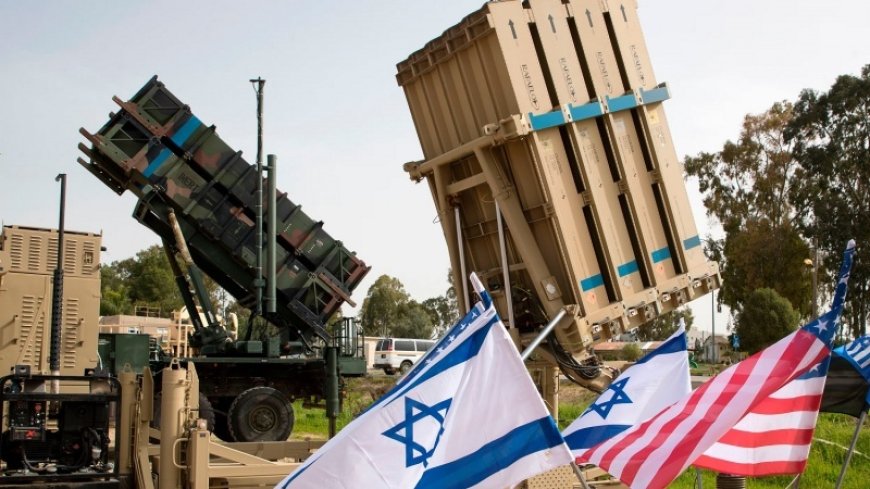Rising Concerns in Washington Over the Efficacy of Israel's Iron Dome Against Hezbollah defensive tactics
.S. officials have expressed growing concerns regarding the efficacy of Israel's renowned Iron Dome air defense system amidst escalating tensions with Hezbollah, the militant group based in Lebanon

U.S. officials have expressed growing concerns regarding the efficacy of Israel's renowned Iron Dome air defense system amidst escalating tensions with Hezbollah, the militant group based in Lebanon. According to reports from CNN and AP, there is a significant apprehension within the American government that in the event of a full-scale conflict, Hezbollah's missile and drone capabilities could potentially overwhelm the Iron Dome, particularly in northern Israel.
Three U.S. officials have voiced these concerns, highlighting the potential vulnerabilities in Israel's defense apparatus. This anxiety is mirrored within Israeli leadership, who recognize the Iron Dome as a primary target for Hezbollah’s extensive arsenal. Recent statements by Seyed Hassan Nasrallah, Secretary General of Hezbollah, underscore this threat. Nasrallah asserted that Hezbollah has utilized only a fraction of its military capabilities and possesses advanced weaponry that could challenge Israel's defensive measures.
Hezbollah's Advancements
In recent days, Hezbollah has demonstrated its ability to penetrate Israeli airspace, revealing critical information about Israeli military positions through a video titled "What Hod-Hod Brought." This footage disclosed the locations of air defense systems, naval bases, and strategic areas such as Haifa Bay. The reconnaissance operations, carried out by Hezbollah drones, have raised alarms in Israeli media regarding the ease with which these drones could gather sensitive intelligence.
Regional Tensions and Conflict Escalation
The backdrop of these developments is a period of intense conflict that began on October 7, 2023, with a renewed offensive by Israel in Gaza and the West Bank. This has led to severe casualties, with reports indicating over 37,000 Palestinians killed and 85,000 injured. The violence has drawn sharp criticism and warnings from various resistance groups in the region, including factions in Lebanon, Iraq, Yemen, and Syria. The establishment of the Israeli state in 1948, following the British colonial project initiated in 1917, has been a point of continuous contention and conflict. The displacement of Palestinian populations and subsequent wars have fueled a persistent cycle of violence and political instability in the region.
Implications for Future U.S.-Israel Relations
The current situation places a significant strain on U.S.-Israel relations, as Washington reassesses its military and diplomatic support in light of the potential shortcomings of the Iron Dome. The effectiveness of this defense system is crucial not only for Israel’s security but also for the broader strategic interests of the United States in the Middle East. As tensions remain high, the coming months will be critical in determining whether diplomatic efforts can mitigate the risk of a broader regional conflict or if military engagements will further destabilize the area.













































